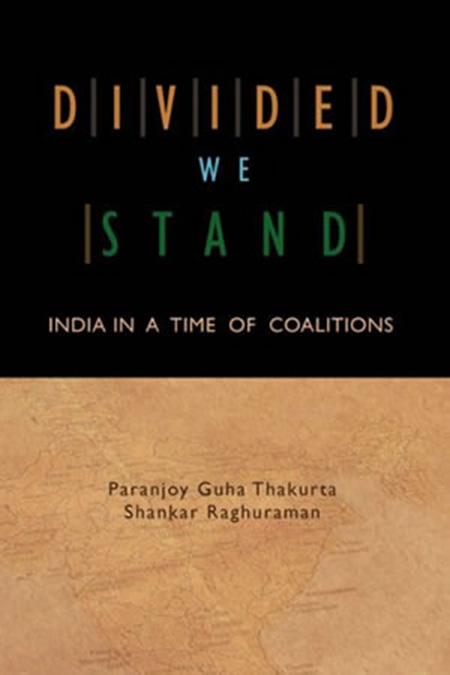In the second decade of the 15th century, after the French ruler Charles VI was succeeded by his son bearing his name, a phrase was coined: "The king is dead, long live the king". The phrase literally meant that the transfer of sovereignty occurs simultaneously from the moment of death of an earlier monarch. Over the years, the phrase came to signify superficial change: the more things change, the more they remain the same.
On 15 August, Prime Minister Narendra Modi announced that he had decided to wind up the Planning Commission after keeping it in a state of suspension for over two months. He categorically stated: "We will very soon set up a new institution... Sometimes it becomes necessary to repair a house. It costs a lot of money. But it does not give us satisfaction. Then we feel it is better to make a new house."
Commentators held forth on how his act epitomized the demise of Nehruvian socialism that was supposedly responsible for much of India's ills. The fact is that India's first Prime Minister did indeed set up the Planning Commission in March 1950. It is also noteworthy that 12 years earlier, the then Congress president Subhas Chandra Bose had proposed the establishment of a National Planning Commission as the "first task" of a politically independent India.
In 1985, Rajiv Gandhi described the Commission's members as a "bunch of jokers". At that time, the Deputy Chairman of the body was none other than Manmohan Singh, who had to be persuaded not to resign from his post. In 1991, Dr Singh, by then Finance Minister in the P.V. Narasimha Rao government, expedited the process of economic liberalization that had been started earlier. By then, socialism, centralized planning and everything else these words were supposed to connote had become "unclean" in the eyes of many who belong to the Indian elite.
The truth is that India, during the time of Jawaharlal Nehru, Indira Gandhi, her son Rajiv, Dr Singh and now Mr Modi, was and remains a mixed -- if not, a mixed-up -- economy. Instead of adopting best practices from across the globe, we assimilated some of the worst practices from countries that claimed they believed in socialism as well as those that propounded the virtues of free market capitalism. Can our present Prime Minister hope to shape the future and make a break from the past by merely changing the Yojana Bhavan nameplate?
It is not possible at this stage to compare the old Planning Commission with the new institution since we do not know what its character and complexion will be like. Try as hard as he might, Mr Modi will just not be able to do away with all the important functions that were performed by the Commission, even if some of these functions can be performed by the Prime Minister's Office, the Ministry of Finance and the Cabinet Secretariat. The government will still require the advice of autonomous experts who are not politicians and bureaucrats.
Take the issue of independent evaluation and coordination of different policies and programmes of various ministries and departments of the central government. Policies and programmes relating to, say, agriculture or energy are formulated by more than six ministries each. There is clearly a need to ensure that all these departments of the government do not work in isolation. In order to ensure effective governance, there has to be coherence and convergence in both the formulation of policies as well as in the implementation of schemes. Mr Modi, in his Independence Day speech, himself acknowledged what is commonly known, namely, that different wings of the government are often at loggerheads with one another.
The question that can be asked is whether a separate body is needed for this purpose or whether the tasks of planning, articulating a strategic vision for the future or prioritizing the manner in which scarce resources are to be utilized, should be left to the head of government himself and his hand-picked team of advisors. The economies of even advanced capitalist countries have not given up planning, coordination and independent evaluation of policies by government-sponsored organisations.
When he was chief minister of Gujarat, Mr Modi certainly did not enjoy his visits to Yojana Bhavan and be told by the likes of a technocrat like Montek Singh Ahluwalia how much money would be made available to him in the form of Central Plan assistance for his state and how the funds were to be allotted among various schemes sponsored by the Union government. Still, a body is needed that will assist the National Development Council, which is headed by the Prime Minister and which comprises Cabinet ministers and chief ministers of all states and Union territories in the country. After all, one of the avowed intentions of the move to do away with the Commission is to strengthen the country's federal structure. This is what Mr Modi has himself argued.
Within three days of the new government coming to power, Ajay Chhibber, the first director general of the Independent Evaluation Office (IEO) of the Commission itself had stated: "Since the Planning Commission has defied attempts to reform it to bring it in line with the needs of a modern economy and the trend of empowering the states, it is proposed that the Planning Commission be abolished."
The Planning Commission is dead. Long live the new avatar of the Planning Commission.


